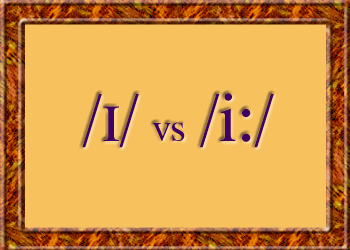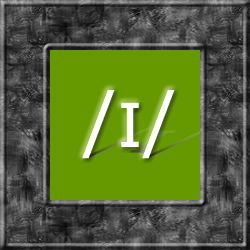3. Relieved, Paco was ready to visit the city
 |
Have a look at the following minimal pairs and guess which ones are pronounced /ɪ/ and which ones /i:/. If you need any help, ask our friend, the robot, for help.
| seat | sit |
| bin |
been |
| filled |
field |
| leave |
live |
| sin |
seen |
If you click here you will find a longer list of minimal pairs including these two sounds.
Now, watch the videos to see how both sounds are correctly pronounced.
| /ɪ/ |
|
|
/i:/ |
Finally, click here and you will, undoubtedly, improve your knowledge on the subject and, of course, your English (netsurf all the sites which talk about these two sounds by clicking next and continue).
Although there are not specific rules to know how to pronounce words or sounds in English, we will try to help you distinguish both vowel sounds by means of common spellings for them.
Find five words in the text of the story at the beginning of the topic containing vowels that are pronounced in the same way as i in championship and ea in steamy.

|
| By net efekt. C. Commons |
| i in champhionship | ea in steamy |
 |
| By DarkComeSoon. C. Commons |
1. My team was winning the game.
a. /ɪ/:
b. /i:/:
2. ... but even so, we were surprised at how soon it started to rain.
a. /ɪ/:
b. /i:/:
3. He seemed very worried when he said a tornado was forming.
a. /ɪ/:
b. /i:/:
4. I remember being scared but also thinking that the two tornadoes were the most surprising things I'd ever seen.
a. /ɪ/:
b. /i:/:
5. Relieved, Paco was ready to visit the city.
a. /ɪ/:
b. /i:/:

